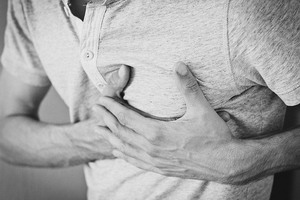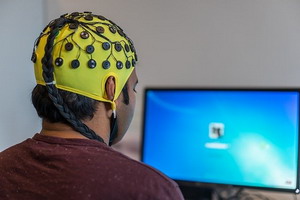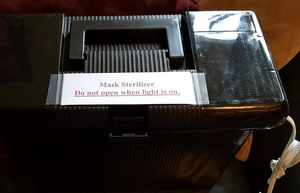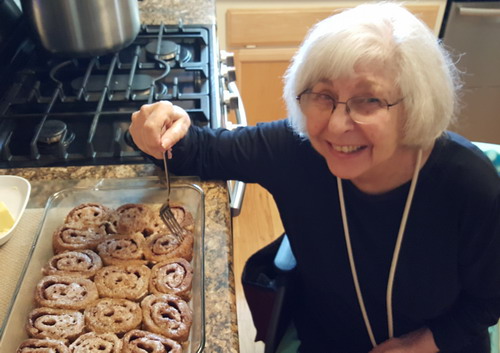Sleep, the subject sounds like a totally boring topic. After all, everybody sleeps, no big deal, right?  Everybody eats also, but how many books and articles, podcasts, and websites are dedicated to the subject of eating? Sleep is just as profound in its importance to our health. There is a ton of research on the
subject, but about all the public hears about this research is that getting a good night's sleep is important. We all know that if we don't get a good night's sleep, we feel groggy the next day. We are not as sharp mentally, but beyond that nothing overtly scary seems to happen. Of course the same can be said of eating doughnuts. Nothing overtly scary seems to happen the next day. It takes years of doughnut abuse before the price has to be paid in
diabetes, heart disease, and so on. But what is the long term price of poor sleep?
Everybody eats also, but how many books and articles, podcasts, and websites are dedicated to the subject of eating? Sleep is just as profound in its importance to our health. There is a ton of research on the
subject, but about all the public hears about this research is that getting a good night's sleep is important. We all know that if we don't get a good night's sleep, we feel groggy the next day. We are not as sharp mentally, but beyond that nothing overtly scary seems to happen. Of course the same can be said of eating doughnuts. Nothing overtly scary seems to happen the next day. It takes years of doughnut abuse before the price has to be paid in
diabetes, heart disease, and so on. But what is the long term price of poor sleep?
Here is a bit of an answer to that question. Did you know that poor fragmented sleep causes  atherosclerosis – hardening of the arteries? This in turn leads to high blood pressure, strokes, and heart disease. This is not just a middle-aged disorder. It begins in your 20's. At this point, 30% of Americans
over age 20 are diagnosed with high blood pressure. Did you know that without good sleep, what you learn during the day does not get stored in your long term memory? So students that study hard all day and then pull an all-nighter have wasted their time. All that learning never gets committed to useful memory they can access at a later date. How about poor sleep causing inflammation of the brain that contributes to early-onset Alzheimer's as well as neurological
problems and depression? The list goes on and on. Basically, without good sleep you can kiss your health goodbye. It is one of the basic fundamentals of health.
atherosclerosis – hardening of the arteries? This in turn leads to high blood pressure, strokes, and heart disease. This is not just a middle-aged disorder. It begins in your 20's. At this point, 30% of Americans
over age 20 are diagnosed with high blood pressure. Did you know that without good sleep, what you learn during the day does not get stored in your long term memory? So students that study hard all day and then pull an all-nighter have wasted their time. All that learning never gets committed to useful memory they can access at a later date. How about poor sleep causing inflammation of the brain that contributes to early-onset Alzheimer's as well as neurological
problems and depression? The list goes on and on. Basically, without good sleep you can kiss your health goodbye. It is one of the basic fundamentals of health.
Maybe the reason there is not much public interest in sleep is that there is no real controversy. Everybody wants to have a good night's sleep. We all feel better when we do. It is not like diet choices where  everybody can take different sides as to what diet is best. There is no vocal group of citizens protesting
that sleep is bad for us and they want to express their right to a bad night's sleep. I think to really get the public's attention we need to highlight the really big sleep issue news from the past few years – poor sleep makes you gain excess weight. That's right, bad sleep makes you fat. Not enough good quality sleep makes your hunger hormone ghrelin go up and your “I'm full” hormone leptin go down. On average poor sleep makes you
consume about 300 excess calories a day. One study interrupted students sleep for 5 days in a row. At that time they ate way more carbohydrates and gained 2 pounds. So yeah, bad sleep makes you fat.
everybody can take different sides as to what diet is best. There is no vocal group of citizens protesting
that sleep is bad for us and they want to express their right to a bad night's sleep. I think to really get the public's attention we need to highlight the really big sleep issue news from the past few years – poor sleep makes you gain excess weight. That's right, bad sleep makes you fat. Not enough good quality sleep makes your hunger hormone ghrelin go up and your “I'm full” hormone leptin go down. On average poor sleep makes you
consume about 300 excess calories a day. One study interrupted students sleep for 5 days in a row. At that time they ate way more carbohydrates and gained 2 pounds. So yeah, bad sleep makes you fat.
Let's take this one step further. In one study 11 men were allowed only 4 hours of sleep each night for 6 days in a row. In that short time, their bodies' ability to lower blood sugar was decreased by 40%. That means their cells had become insulin resistant in only 5 days due to a lack of sleep. That sets them up for type 2 diabetes. That's pretty nasty for just missing a little sleep for a few
days.
You should have the picture by now – you really need a good night's sleep every night – 71/2 to 8 hours every night. I have several patients that say they do just fine with only 6 hours of sleep. But numerous  studies have shown that 6 hours of sleep significantly reduces your brain functionality. The problem is
sleep deprivation is a lot like getting drunk – you don't think you have any problem. But actual reflex speed tests and critical thinking skill evaluations show that you are significantly impaired even though you think you are fine.
studies have shown that 6 hours of sleep significantly reduces your brain functionality. The problem is
sleep deprivation is a lot like getting drunk – you don't think you have any problem. But actual reflex speed tests and critical thinking skill evaluations show that you are significantly impaired even though you think you are fine.
How do we get good sleep? This seems like it should be simple, but obviously it is not. The CDC states we are in the middle of a sleep deprivation epidemic. (This impressed me much more when I read this a couple of years ago. Now I see the word epidemic is used rather freely by the CDC.) With my patients, I find two patterns: difficulty falling to sleep, and trouble waking up in the middle of the night and not falling back
to sleep.
There are many things that can make it difficult to fall asleep. Caffeine or other stimulant drugs consumed  within 8 hours of sleep time is an obvious one. No coffee, tea, energy drinks, or chocolate in the latter half of the day helps. Eating too late is another problem. You really want your dinner to have moved out of
your stomach before you go to bed. For most people that means having your last meal of the day 4 to 6 hours before you go to bed. All that late-night snacking does not help you sleep. A modern problem is electronic devices, which means your computer, television, cell phone, tablet, and anything else with a screen. The blue light they emit stimulates the wake-up portion of your brain. Blue light is a morning light color so you want to eliminate viewing such sources
one to two hours before bedtime. If you can't possibly leave your cell phone or computer alone, then you can wear blue light blocking glasses in the last few hours of the day. They make everything look kind of orange, but they will keep your brain headed for a good night's sleep.
within 8 hours of sleep time is an obvious one. No coffee, tea, energy drinks, or chocolate in the latter half of the day helps. Eating too late is another problem. You really want your dinner to have moved out of
your stomach before you go to bed. For most people that means having your last meal of the day 4 to 6 hours before you go to bed. All that late-night snacking does not help you sleep. A modern problem is electronic devices, which means your computer, television, cell phone, tablet, and anything else with a screen. The blue light they emit stimulates the wake-up portion of your brain. Blue light is a morning light color so you want to eliminate viewing such sources
one to two hours before bedtime. If you can't possibly leave your cell phone or computer alone, then you can wear blue light blocking glasses in the last few hours of the day. They make everything look kind of orange, but they will keep your brain headed for a good night's sleep.
Evening time is for slowing down, so getting your brain all hyped up with an exciting video game, movie, or a political rally is bad news for having a good night's sleep. Our body also is genetically programmed to expect that temperatures get cooler  at night. Most studies demonstrate improved sleep when the thermostat is set to
between 60 and 67 degrees at night. Studies also show better sleep when you cuddle with a loved one at night.
at night. Most studies demonstrate improved sleep when the thermostat is set to
between 60 and 67 degrees at night. Studies also show better sleep when you cuddle with a loved one at night.
Are there supplements that help with falling asleep? There are several types that do help. GABA is the neurotransmitter that turns nerves off, so herbs that act like GABA help you go to sleep. Examples are herbs like valerian and passionflower. Other tranquilizer herbs are lemon balm, chamomile, lavender, borage, hypericum, and saffron. Many people use the actual sleep-inducing hormone melatonin. With melatonin very
small doses, like 1 mg, work the best. More than that can create a rebound effect and make things worse. There are also numerous homeopathic medications that might be appropriate for sleep. What you don't want to use is the over the counter sleep aids. They are based in the drowsiness induced by antihistamines. The problem is the frequent use of these drugs for either allergies or sleep sets you up for dementia. Stay away from these guys.
Now let's look at that pesky waking up in the middle of the night issue. The most common reason for this  is a low blood sugar episode in the middle of the night. When the brain gets low on sugar it tells the adrenal glands to dump a bunch of adrenaline to stimulate the release of sugar from the muscles. But adrenaline is
the fight or flight hormone, so it wakes you up feeling all amped up and ready for action. This is not a problem for brains that are used to using ketones for energy due to being on a keto diet. But normal brains often have to deal with poor blood sugar handling issues in the body. I have a special protocol and a 3-week diet I use with patients to resolve this. But in the short run, you can try to solve this by eating a very slowly dissolving starch just before bed.
A small amount that has no protein or fat is tolerable to the body. Something like half a refrigerator cold cooked potato or sweet potato would do the trick. The cold changes the starch to a slowly absorbed form. Hummus would also work. This will leak tiny bits of sugar into your system all night long.
is a low blood sugar episode in the middle of the night. When the brain gets low on sugar it tells the adrenal glands to dump a bunch of adrenaline to stimulate the release of sugar from the muscles. But adrenaline is
the fight or flight hormone, so it wakes you up feeling all amped up and ready for action. This is not a problem for brains that are used to using ketones for energy due to being on a keto diet. But normal brains often have to deal with poor blood sugar handling issues in the body. I have a special protocol and a 3-week diet I use with patients to resolve this. But in the short run, you can try to solve this by eating a very slowly dissolving starch just before bed.
A small amount that has no protein or fat is tolerable to the body. Something like half a refrigerator cold cooked potato or sweet potato would do the trick. The cold changes the starch to a slowly absorbed form. Hummus would also work. This will leak tiny bits of sugar into your system all night long.
Leg cramps and having to pee at night are famous for disturbing sleep. Sleep apnea is also a big issue for many folks. For leg cramps try taking magnesium and potassium before bed. Other folks need calcium. Apnea needs a proper sleep study to determine whether you need to wear an apnea device at night. This is a much easier study to do these days as it can be done remotely, meaning at home. Other than not drinking
anything the few hours before bed, I don't have any good answers for peeing at night.  There are drugs for this, but they affect so many other systems in the body that I shy away from them.
There are drugs for this, but they affect so many other systems in the body that I shy away from them.
So the big message is sleep – we need it, like 8 hours every night. There is a ton more I could write about sleep, but I think you get the idea.
Good night,
David
We have received the second batch of 20  copies of my book The Balanced Life. For those of you that signed up for the book last year, we have set
your copies aside. They are available in the office for $17.99, and they are also available on Amazon.com
copies of my book The Balanced Life. For those of you that signed up for the book last year, we have set
your copies aside. They are available in the office for $17.99, and they are also available on Amazon.com
New service in Office - free mask sterilization
I was getting creative the other day and decided to create a mask sterilizer for the office. Using a small UVC sterilizing light I mounted into a file box does the job perfectly. Hang the mask from the hook inside the lid and close the lid. Push the timer button one time for 5 minutes of sterilizing light. Be sure the lid is closed as UVC light will damage your eyes and skin. Five minutes will kill
any viruses or bacteria that has collected on your mask. Directions for making your own sterilizer here.
Ellen update:

Sometimes it is hard to keep the kids from stealing the cookies, or in this case Ellen from sneaking into the fresh keto cinnamon rolls. Fortunately I made them as a treat for her so stealing them was just fine. She wanted to know if I had a recipe for these babies, but of course I didn't as I make things up as I go along.
I find this keeps life fresh with lots of variety.

